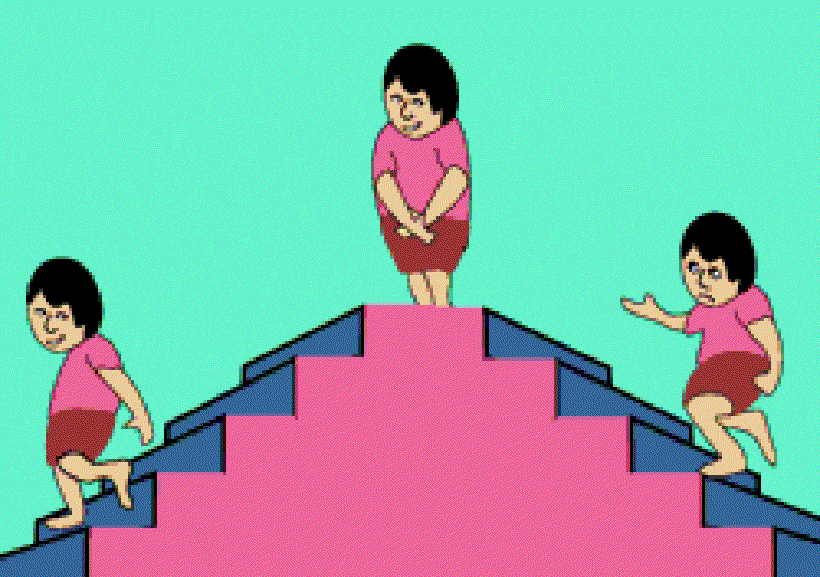Why is it Harder to Walk Uphill?
Home / Science for Kids / 5Ws & H For Kids / Why is it Harder to Walk Uphill?
Raju heard the familiar cry of the ice-cream seller reach his ears, clear as a bell, even from his fourth floor apartment. He flew out of the flat and bounded down the stairs four steps at a time. The lift being under temporary repair, he had to take the stairs. He arrived downstairs a little breathless, and extremely impatient to have his ice-cream.
After buying it, he decided to rush home so he could eat it in peace. The climbing upstairs bit was a pain though. It always was. He had barely gone one flight of stairs when his knees began to hurt, and he felt majorly out of breath.

This fact never ceased to amaze Raju – why going up a flight of stairs in his building got him exhausted, but coming down the same flight of stairs was a cakewalk.
Do you know why this happens?
We know that the earth attracts everything towards its centre. This is due to its force of gravity. When we get away from the earth’s surface, we have to do more work to overcome the force of gravity.
On the other hand when we come down from a height, the gravitational pull helps our movement. While going upstairs, Raju has to lift the weight of his body against the gravity and greater energy is required to do this than for walking downstairs.
When Raju is climbing the stairs, his muscles have to do more work. For this the heart has to pump more blood to the cells and as a consequence lungs have to do more work to remove the carbon-di-oxide from the heart and replenish it with oxygen.
 / [Shutterstock.com](http://www.shutterstock.com/?cr=00&pl=edit-00)](/media/himalayan-sherpa-porter-large-load-uphill_hu9a81f2d254216f528bf03619ad9bd2e3_114140_820x0_resize_q60_box.jpg)
It’s the same when we go uphill. The steeper the climb, the more is the work to be done. The more quickly we breathe as a result. In comparison to the energy required for walking on a horizontal plane, the total value of the extra energy needed for climbing is the weight of the body times the height we have to climb.
If we climb a mountain through two different paths – one steep and the other less so, we would feel greater fatigue in case of the steeper one. When we come down a hill, very little energy is required because the body is carried down the slope due to earth’s gravitational pull. Our muscles do less work as a result and we do not
feel tired while descending.
434 words |
4 minutes
Readability:
Grade 6 (11-12 year old children)
Based on Flesch–Kincaid readability scores
Filed under: 5ws and h
Tags: #flights, #sherpa, #gravity, #heart, #muscles
You may also be interested in these:
Why do Doctors Examine the Pulse?
What is Physiotherapy?
Dress Relief
The Ungrateful Friend
What is Asthma?